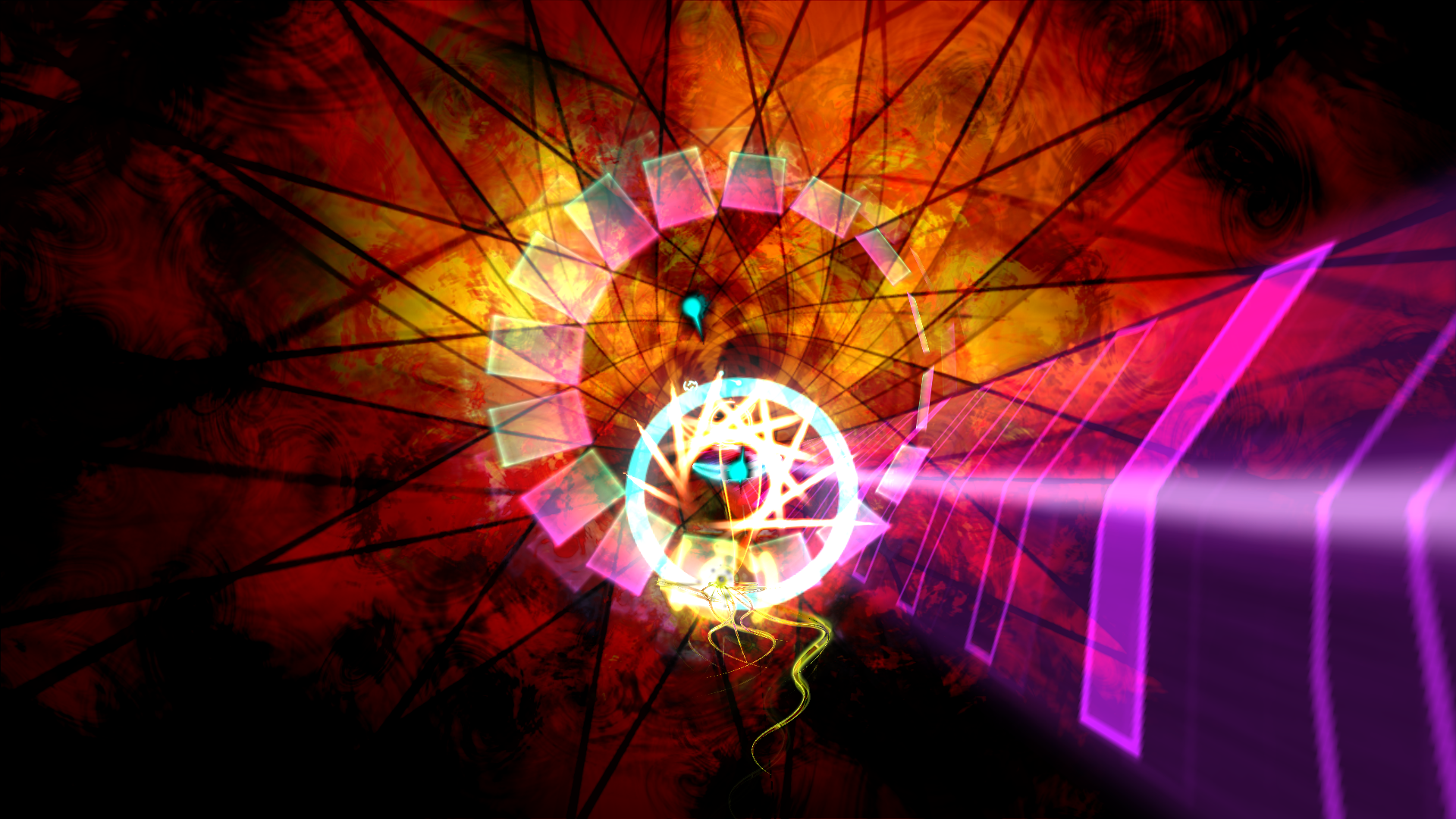
There has long been a magnificent feeling you get when the melodies of a game soundtrack blend and weave into a video game to create an entrancing and addictive style of gameplay. Rhythm games are in an odd situation of being considered a niche genre, when ironically, they have a near-universal appeal. At no time was this more apparent than during the incredible years when Guitar Hero and Rock Band were close to becoming the biggest games in the industry.
Not too long after the plastic instruments were in every family's living room, the public's view of the rhythm genre became skewed. Guitar Hero and Rock Band became the only things you could think of whenever anyone mentioned rhythm games. This clouded vision is why there is a very unfounded stigma that the rhythm genre died the moment Guitar Hero faded into obscurity. Rhythm gamers around the world know that this absolutely isn't the case. They are still thriving albeit under a much lower profile.
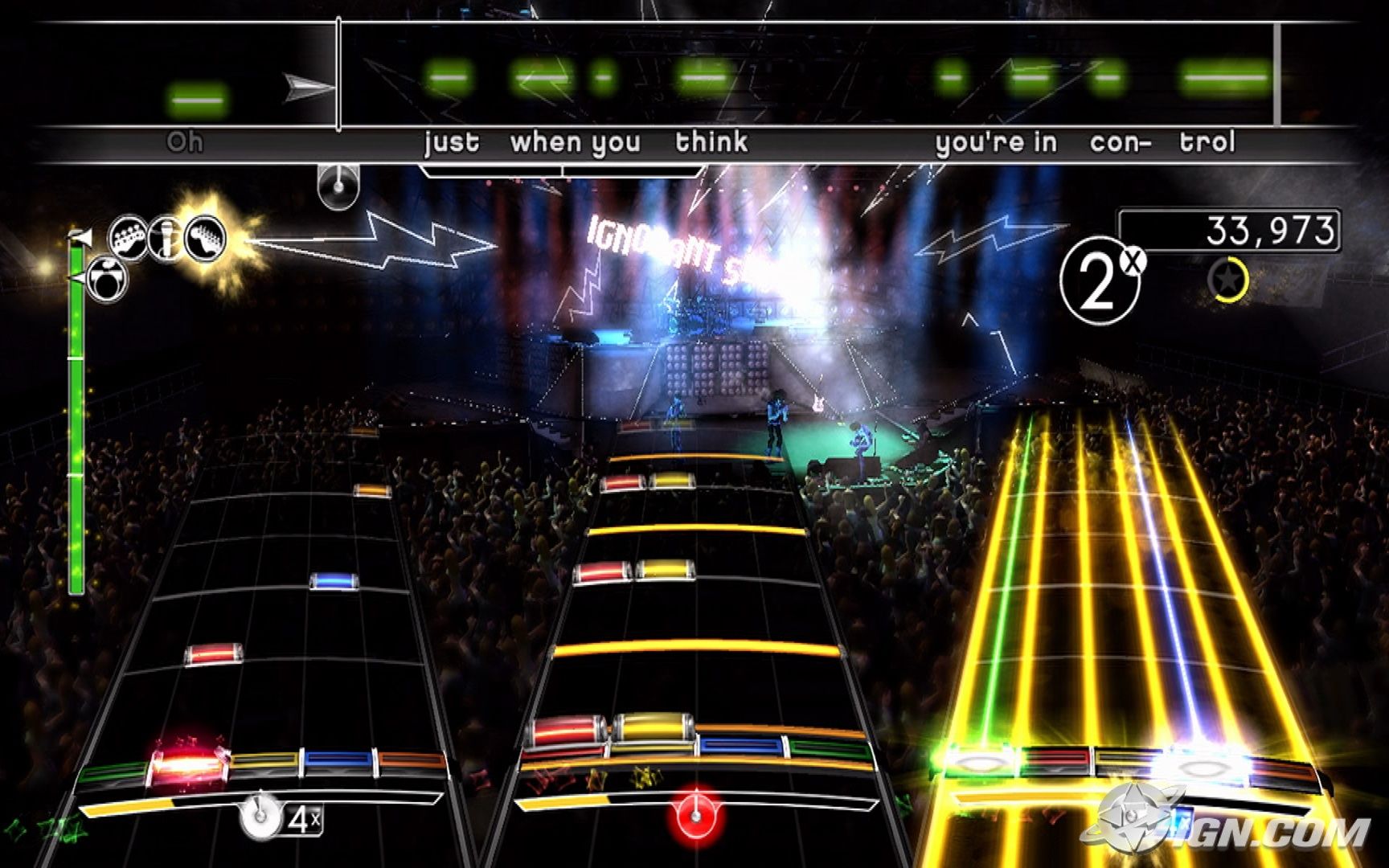
Rock Band was the pinnacle of rhythm gaming popularity.
I'll start this with a little reveal about myself. When I was just a younger, naive gamer, I also thought that music games were done for after Guitar Hero was cancelled. I absolutely loved Rock Band and Guitar Hero. I became supremely addicted, and spent hours upon hours playing competitively for the top scores. I deeply enjoyed the primitive, yet satisfying fact that you got better by simply playing over and over. After a couple years of shredding plastic guitars and banging on fake drums, I decided to move on, and decided that music games were a thing of the past.
After countless more RPGs, action games, and platformers, I found myself a new type of gamer completely oblivious to the rhythm genre as a whole. This wasn't until one of my newer friends brought me to Disney Quest, which was a marvelous five-floor arcade full of games of all types. My eyes were alive with the lights and noises signaling from all sides of my perspective. There's a room, that has since grown into one of my favorite hang out spots, that is specifically stocked with nothing but rhythm games. DDR and Pump it Up dance games pounded bass from the corner, musically themed arcade gamers littered the floor flashing brilliant displays of color, and Guitar Hero was placed prominently on an entire side of the room.
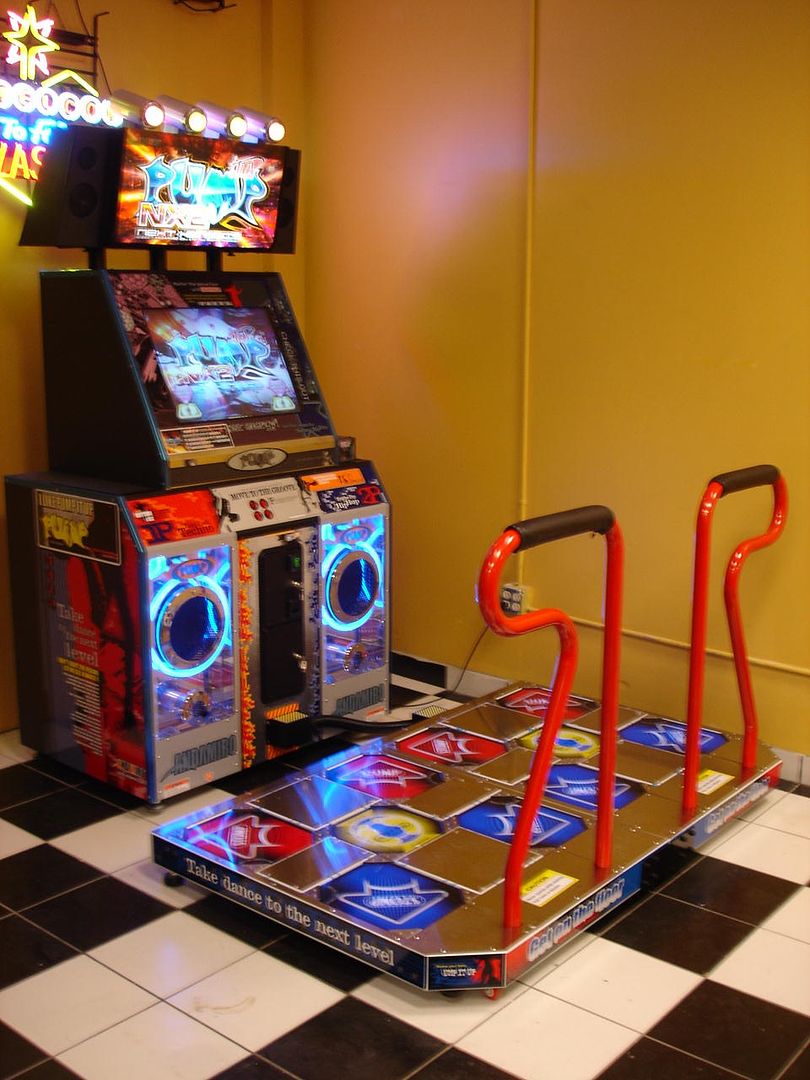
It was Rock Band all over again. I needed to master this machine.
I feel like I walked through time into the glory days of my youth where music and gameplay were still in a harmonious infusion of interactivity. My spark was re-ignited. After my first attempt with Pump It Up, which is similar to Dance Dance Revolution, I felt that same addictive feeling of needing to improve through repitition all over again. Once I came home that night, I instantly brought my Rock Band set out and started jamming away at the songs that I used to love playing. My skill, though initially rusty, came back into place like a displaced bone popping back into it's socket.
During a later visit to Disney Quest I played a new rhythm game. One that would turn my renewed interest in music games into a blazing fervor of appreciation and enjoyment. It was called Re-Rave and it's premise was simple: just hit the circles on the touch-screen in time to the music. In what seemed like little pocket of time completely my own, I lost myself into the game. The music was an incredibly pulsating style of techno that sent my mind racing through virtual clouds. The screen, alive with colors and shapes, was like my own world that my fingers manipulated. After an hour, I finally walked away from the game as a changed man. Rhythm gaming was exhilirating.
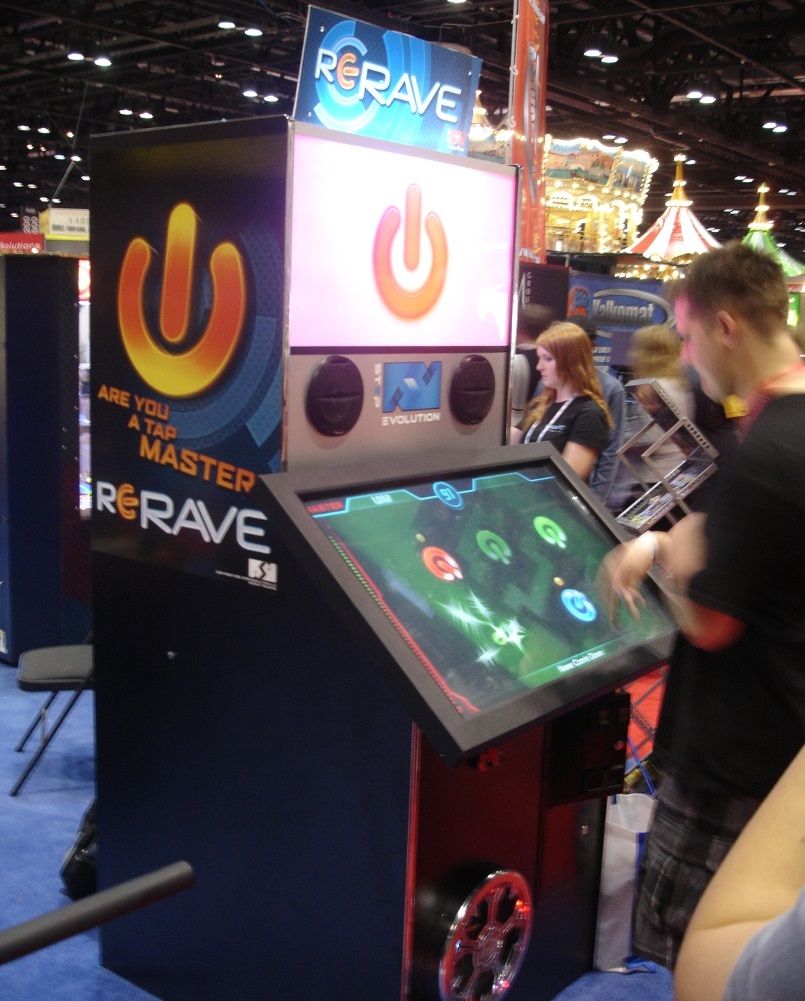
ReRave is possibly the most addicting rhythm game I ever played.
It was after this that I started realizing that the video game industry didn't forget about rhythm gaming at all, and that it wasn't only in arcades. Sound Shapes for the Playstation Network was an amazing example that something as simple as a beat and a controller could create something extremely entertaining. The game garnered critical acclaim and a great following who love the game for the same reasons I do.
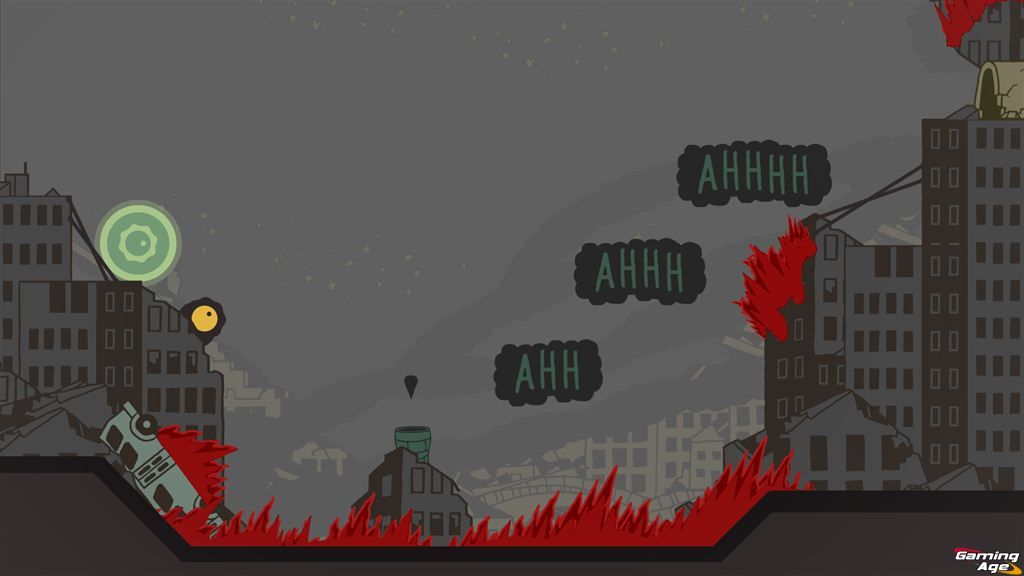
Sound Shapes had an idea of having the actual levels become the songs
Many think that the smaller types music games like Parappa the Rapper, Amplitude, or Frequency are over and done with, but there are several new games with a superb focus on music. Rock Band Blitz followed after Sound Shapes to keep the Rock Band crowd alive without the plastic instruments. While it was only a mild success, Final Fantasy Theatrhythm was a godsend for 3DS gamers. Theatrhythm brought RPG elements to the rhythm genre and created a new archetype of game that begs to be expanded upon.
The success of the more recent rhythm games can't be fully discussed without mentioning Bit Trip Runner 2 which is still one of the highest rated downloadable games this year. It's simple blend of music and gameplay is still a completely refreshing dynamic that seems to never get old. Even Rayman Legends, the next in the Rayman platforming series, has ushered in a new focus on levels that are set to classic rock songs. The possibilities are endless, and any combination can work. Techno and touch screen? Sure. Rock music and platforming. Why not? The fact is, we enjoy music on it's own so much, that when added to a game, it becomes something immediately pleasant, and downright addicting.
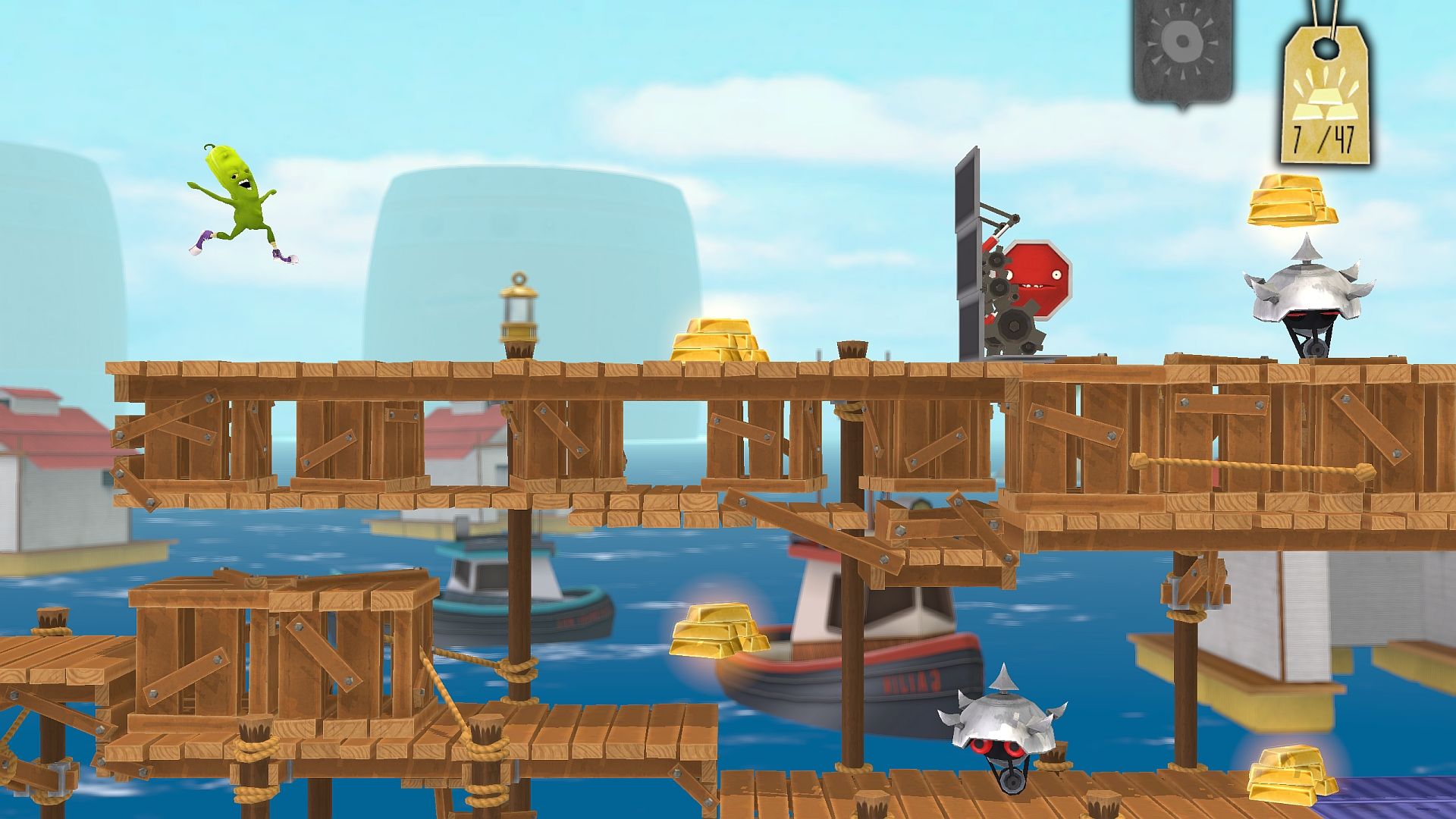
Bit Trip Runner 2 brought this charming aesthetic and added a wonderful soundtrack
There have been several other rhythm games that have kept the beat from ever dropping that run the gamut of what you'd expect like Lumines for the Plastation Portable. Experimental music games are still being revealed alongside the traditional games like Kick Beat for the Vita. So many of these games offer the euphoria of kinetic visuals all moving in sync to unforgettable songs and sounds. It's a feeling that will last as long as the game and music industry thrive, and will continue to survive even as the most prominent rhythm games fade out. Don't let the vibe of the general public fool you into thinking otherwise.
No comments:
Post a Comment